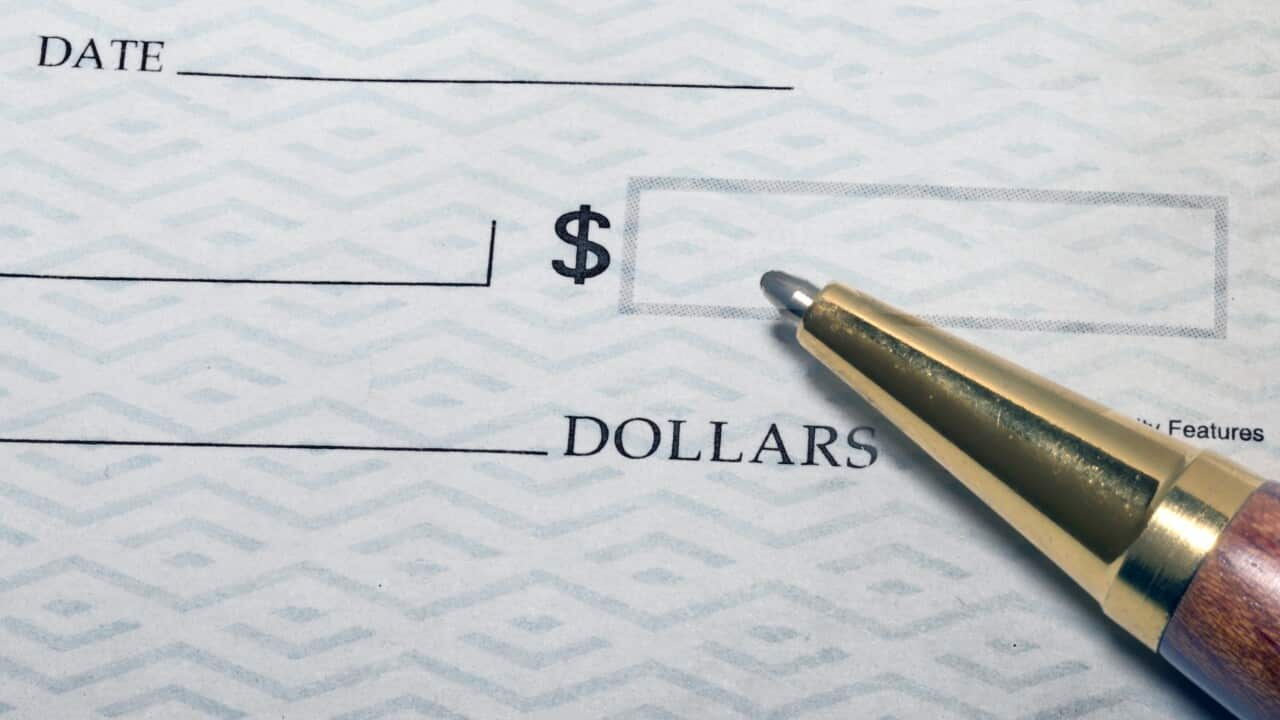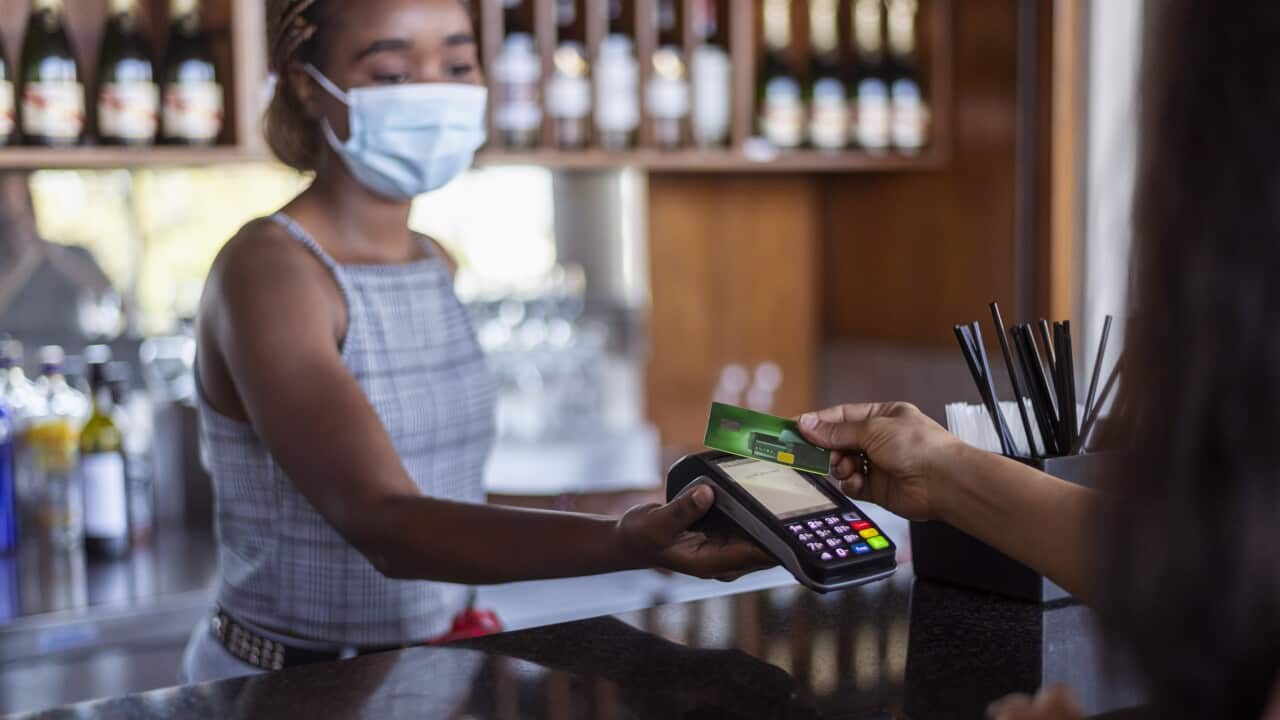Key Points
- Cheques account for 0.2 per cent of non-cash retail payments in Australia.
- Australia will phase out cheques by 2030.
- Finland was among the first countries to eliminate cheques, doing so three decades ago.
Paying by cheque will no longer be possible by 2030.
The Australian government will phase out the form of payment within the country throughout the next seven years.
The move, announced by Treasurer Jim Chalmers on Wednesday, is part of the federal government's plan to modernise the nation's payments system and comes as the use of cheques in Australia has plummeted.
"There has been an almost 90 per cent decline in the use of cheques in the last 10 years, with cheques now comprising only 0.2 per cent of non-cash retail payments in Australia," Mr Chalmers said.
He described payment with cheques as a "costly means of exchange," which could be done more effectively by making use of digital payment methods.
"We want to systematically transition these transactions to digital to improve the efficiency of this sector and getting Australians their money faster as well," Mr Chalmers said.
"As cheque use declines, the cost of supporting the cheque system will continue to increase. At the same time, many merchants are ceasing to accept cheques as a means of payment."
Figures released by the Australian Banking Association this week show 98.9 per cent of banking now takes place through apps or online.
What actually is a cheque?
Younger Australians may associate cheques with the oversized cardboard items handed over to people who win the lottery or at fundraising events but for the older generations and certain businesses, cheques have provided a method of funds transfer for decades.

Oversized novelty cheques may be handed out to winners at sporting competitions and fundraising events but digital transactions overtook the use of cheques years ago. Source: AAP / Julian Smith
Account holders are provided chequebooks full of multiple blank cheques which they can fill out as required.
Which other countries ditched cheques?
Finland was among the first countries to eliminate cheques, doing so three decades ago.
Sweden, South Africa and Norway are among the countries that have followed suit.
In the Netherlands, banks will not even cash international cheques, which proved during the height of the pandemic who received government support in the form of cheques.
Closer to Australia the use of cheques was phased out in New Zealand a couple of years ago and our closest neighbour Papua New Guinea has taken steps to stop the use of cheques in the private sector by the end of 2023.

While chequebooks are rarely seen then days, some businesses and individuals prefer to use them as a method of payment. Source: Getty / MarkFGD
In Australia, the Victorian Gambling and Casino Control Commission recently found the misuse of bank cheques at Crown Casino was found to have been likely to have aided money laundering and gambling harm.
Which countries use cheques to pay for things?
A 2023 report by the Bank for International Settlements found the share of cheques in the total value of cashless payments made around the world fell from 15 per cent in 2012 to 4 per cent in 2021, while that of credit transfers increased from 76 per cent to 90 per cent.
It also found in Canada and Singapore, cheques still accounted for one-third of the total value of cashless payments in 2021.
Those in the United States of America have continued to use cheques at a much higher rate than in many other countries as well.
It was reported at the beginning of 2022 that 81 per cent of businesses were using the payment method.
Individuals in the US also continue to use checks, with figures from 2017/18 indicating about 7 per cent of transactions by consumers were made using the payment method.
Increased efficiency as cheques replaced with digital
Pete McCormick from Financial Technology company FIS said a move away from cheques would bring a new level of efficiency to Australian businesses with the benefits flowing into the Australian economy.
"If you look at the benefits of businesses getting cash quicker, so their cash flows better, their liquidity and cash flow is a very important part of businesses," he said.
Mr Chalmers assured Australians they would have continued access to cash but said Australia's "growing digital economy" represented huge potential for improvements in productivity.
"We want to systematically transition these transactions to digital to improve the efficiency of this sector and getting Australians their money faster as well," he said.
A gradual phasing out of cheques
Mr Chalmers said Australia's transition away from cheques would be gradual, coordinated and inclusive.

Treasurer Jim Chalmers said leaving cheques in the system was an increasingly costly way of servicing a declining fraction of payments. Source: AAP / Dan Himbrechts
Mr Chalmers said the government would work with industry to minimise adverse impacts to consumers and businesses and ensure vulnerable Australians had the assistance they needed to switch to other payment methods.
"We understand the change in payment methods that is already underway is difficult for some people, including older Australians, and some small businesses," he said.
The Combined Pensioners and Superannuates Association has previously spoken out against moves by Australian banks to make the use of cheques less accessible.
In an article published on its website last year, the association noted: "It’s all very well to point out that online banking is so much more convenient than traditional banking, but the reality is that ‘online’ is and always will be an alien concept to many older Australians."










